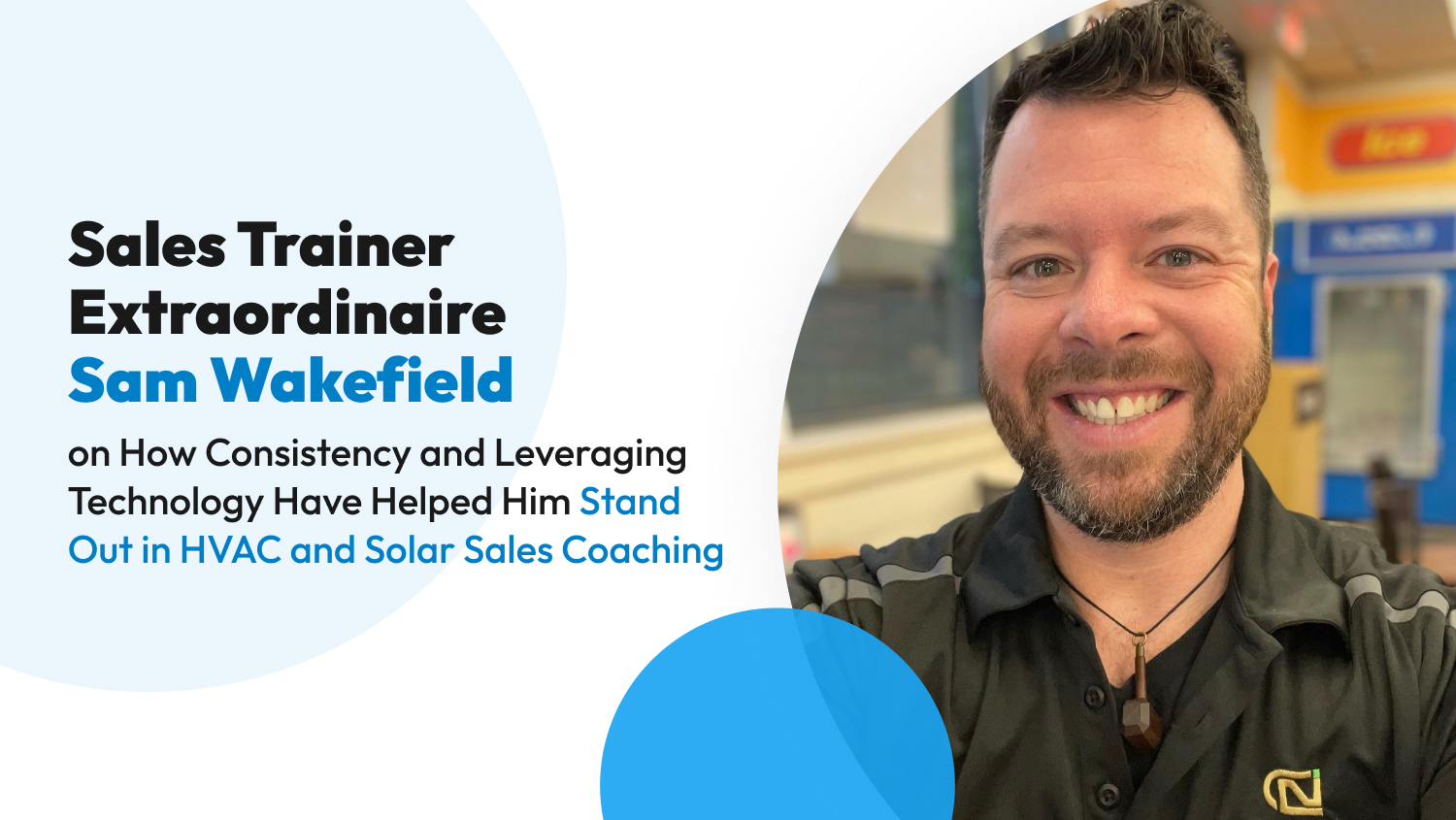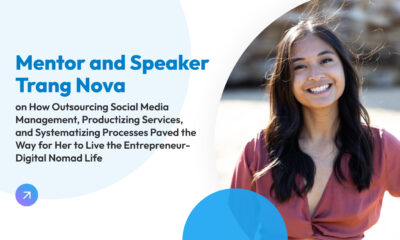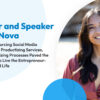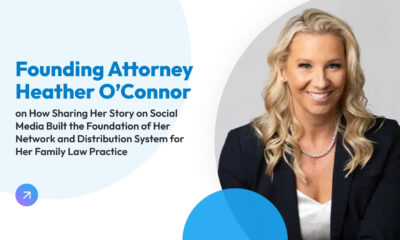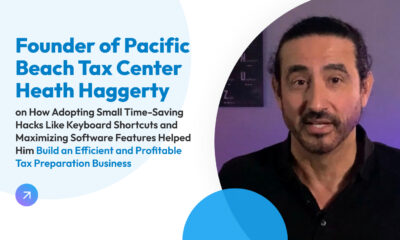Case Study
Sales Trainer Extraordinaire Sam Wakefield on How Consistency and Leveraging Technology Have Helped Him Stand Out in HVAC and Solar Sales Coaching
What would you do if your company spent thousands of dollars on a renowned sales training that turned out to be outdated and irrelevant to your market today?
Sam Wakefield was a sales manager and trainer at a big heating and air company in Texas when this happened with his sales team. They showed him the material used, and it was exactly the same as when he took the training over ten years ago! After failing to find a better alternative, he decided to train his team himself. Little did he know that this would start him on the path of creating his own sales coaching company.
In this article, we learn about the challenges Wakefield faced as he built Close It Now Sales Training and the people, systems, and tools he used to tackle them. Don’t forget to check out his Productivity Stack Quick Reference and his Reading List at the end.
Table of Contents
- Starting
- Growing
- Scaling and Success
- Hindsight: What Wakefield would have done differently
- Advice from Wakefield on long-term investment in personal development
- Wrap Up
- Wakefield’s Reading List
- Wakefield’s Productivity Stack Quick Reference
- More About Sam Wakefield
Starting
Challenge 1: Distribution: Building an audience for the coaching business
Wakefield had always wanted to go into business for himself. So the idea of creating a coaching business by sharing his knowledge of the latest and most effective HVAC sales techniques, skills, and practices made complete sense. As he provided in-house training for his team and documented his process, he thought about how he could reach sales professionals outside of his current employer and team who also needed his help.
Solution: Wakefield decided to launch a podcast to build an audience before rolling out his sales coaching program. He created a Facebook group to serve as a lead magnet and funnel. Members could send him questions, he would hold Facebook lives to respond to them and he also tackled these crowdsourced questions on the podcast.
Inspired by Gary Vaynerchuk’s Jab, Jab, Jab, Right Hook, Wakefield continuously provided free training and shared his expertise on Facebook and the podcast. He offered so much free value to listeners that at the end of the six months, his audience was clamoring to get into his coaching program.
He recalls, “I knew it was time to open the coaching side of the program when enough people started basically throwing money at me to train them, and I didn’t have to go solicit it. That was when enough value and emotional currency had been invested into people that it was time to monetize.”
The Close It Now podcast continues today with new episodes released twice a week. Mondays are for training-focused content while Fridays are for interviews with resource people about growth mindset and other more high-level business tactics
People: Wakefield, in-house sales staff, Facebook group members
Systems: Providing value to prospects before asking for any sale, using a Facebook group as a lead magnet and funnel for podcast
Tools: Jab, Jab, Jab, Right Hook: How to Tell Your Story in a Noisy Social World by Gary Vaynerchuk, Facebook, podcasting equipment, Audacity for sound editing, Captivate hosting site
Challenge 2: Launching without a product/coaching curriculum
Wakefield is an action-taker and tends to be a seat-of-the-pants type of businessman. Just like how his Kolbe A Index assessment describes him, he acts with a sense of urgency and improvises easily, while planning and organizing are not his strong suit.
For his podcast, he doesn’t prepare notes and just hits ‘record’ once he has a broad topic to discuss. Similarly, when he launched his sales training program, he didn’t have a curriculum planned out and ready. How did he manage the rollout?
Solution: The podcast content became the starting point for the curriculum. From this, Wakefield created and adjusted the program as he worked with his first clients.
“So my way of doing R&D is to try it and adjust, try it and adjust. It happened along the way. The good thing about starting a business that’s very informational is you’re very nimble, and you can adjust very quickly according to whatever things happen in the environment.”
Eventually, he came up with two formats: group coaching and high-performance coaching. Group coaching covers a pre-set curriculum over weekly live video training sessions, with the opportunity to exchange ideas with peers in the group. The high-performance coaching option is a one-on-one, customized six-month program. This more intensive format takes into account a client’s aptitude, training, and current systems to design a plan on how to elevate their sales performance.
People: Wakefield, his first clients
Systems: Building a coaching curriculum on extensive podcast content, adjusting a coaching program as you rollout, being responsive to coaching client needs
Tools: Google Calendar, Calendly, Zoom
Growing
Challenge 3: Expanding his niche
About two years after launching his HVAC sales coaching program, Wakefield turned his attention to solar system sales. The push for electrification and renewable energy had been ramping up in the US, and the jump in power rates in the last few years definitely had an impact on the HVAC industry. He recognized the opportunity to offer an alternative energy solution like solar to the same homeowners who were the target market of HVAC sales.
Wakefield shares, “This last year alone, energy inflation was at 46%. That’s why some people are electrifying because it is cheaper. You can create your own power and at a fixed cost.” How did he capitalize on this opportunity and go about expanding his niche to incorporate solar sales?
Solution: Wakefield placed his podcasting and coaching business on hold for a year and a half as he studied solar technology and the industry. He not only set up a solar sales team himself, but he also wanted to be able to take this knowledge back to the heating and air sales professionals. Today, he has dedicated coaching programs for solar sales, a different program for HVAC sales, and one program that combines HVAC and solar.
He tells us, “The way solar is being promoted across the country is very grassroots a lot of times, a lot of canvassing teams knocking on people’s doors. So how do we get the message out to more people in a trusted way? Well, [that’s why] there’s a big merge into industries like heating and air. They already have existing service clients. They’re already trusted in a home. What I’m doing is teaching a lot of heating and air companies how [to integrate solar] to offer a complete solution for a home.”
People: Wakefield, solar sales team
Systems: Investing time and effort to learn new a new product and industry, capitalizing on synergies between related industries
Tools: Google Calendar, Zoom
Challenge 4: How to maintain consistency
At this point, Wakefield was clear about the market he served and had built a system on how to reach the sales professionals who needed his help. What was the challenge he faced in this stage of growth in the business?
He shares, “When you’re an entrepreneur, the work is easy to do, but it’s easy not to do. So the challenge is to maintain consistency to really stay on top of it and grow it along there.”
Solution: Wakefield drew on his many years investing in personal development and growth to stay focused and keep taking action. More than the time management strategies, the most powerful driver for him is the ‘become the type’ philosophy.
“So one of the things I say a lot on the podcast is to become someone worth buying from. As an entrepreneur, it’s the same thing. If I’m striving to be somebody who owns a multi-million dollar business, what does that person look like? What do they do, what’s their routine like? Then I set criteria for that. And if what I’m doing every day doesn’t match that, then I’m in internal conflict.”
He explains that defining your identity and setting a personal standard is very different from goal-setting, which can be a very external form of motivation that is easy to reset and dismiss. “If you have a personal standard, it’s your own integrity on the line. That changed a lot of things for me.”
People: Wakefield
Systems: Identity-based motivation, making decisions and taking action based on the person you want to be
Tools: Google Calendar
Challenge 5: Time management
Wakefield is juggling a lot of tasks and roles. For his sales coaching business, he does podcasts twice a week, manages a Facebook group, hosts FB lives, and runs one-on-one and group coaching sessions. He also heads and trains a local sales team for a residential solar company. He is constantly training and growing teams in multiple cities and states. How does he keep tabs on everything and stay on track?
Solution: Wakefield tells us, “I live and die by the calendar. This is a basic tool, nothing super creative or flashy. I sync all my calendars from the different businesses into one calendar I can look at right on my phone.”
But he emphasizes that consistently scheduling and planning out your tasks is just half of the equation, you have to hold those appointments sacred to get things done. “That doesn’t mean you can’t be flexible. But if you allow the things that are important, not urgent, to get pushed to the side, those are the things that become the fires that you have to put out when they are delayed long enough. They will turn into important and urgent. So you have to take care of those.”
He mentions a few other strategies that help with his time management. Fitness and nutrition are necessary to always have fuel in the tank. Having family board meetings has been crucial, as well. He shares how a family meeting would go, “This next season of life, here’s what the focus is going to be. And at the end of that, here’s the reward for the family. Will you help me accomplish this goal?”
He recommends the book Family Board Meeting for anybody struggling with dividing time between business and family. It provides insight not just on how to get the family pulling in the same direction for the same goals but also on strengthening your relationships.
People: Wakefield, his family
Systems: Holding calendar appointments sacred, prioritizing health and nutrition, getting the buy-in of family through family board meetings
Tools: Family Board Meeting, Google Calendar, Calendly, paper planner
Scaling and Success
Challenge 6: Delegation: maximizing the dollar value of your hour
Wakefield operated his business as a one-man team for about three years before he began to think about improving efficiency. Training with a business mentor taught him to look at the opportunity cost of working on non-income-producing tasks.
For example, mowing his lawn himself doesn’t save him $30 an hour, it costs him however many hundreds or thousands of dollars he could have generated if he spent that time on his business. This got him to seriously think about the tasks he should eliminate and delegate so he could focus on higher-value activities.
Solution: Wakefield wasn’t entirely new to the process of outsourcing, as he had previously hired freelancers on Fiverr to create an intro and outro for his podcast. He had also previously outsourced marketing and editing for his podcast.
But with the training, he learned to be more intentional about how he allocated his time. He hired a personal and business assistant to handle many administrative tasks. For the business, his assistant handles his calendars and maintains a paper planner to check the accuracy and completeness of his digital schedules. He even trained her to edit his podcast and ended up saving $3,500 a month!
People: Wakefield, business mentor, administrative assistant
Systems: Identifying tasks to do, delegate or eliminate, outsourcing administrative tasks
Tools: Fiverr to outsource one-off tasks, Google Calendar, Calendly, paper planner
Challenge 7: Leveraging tools and technology
For Wakefield, differentiation from competition is an important element for successful sales. And one way he looks to stand out is by incorporating tools and technology in creative ways into the sales process. In fact, on his Friday podcasts when he interviews guests, he loves to ask them about unique technologies that can be useful to his audience. What tools has he adopted for the sales process and his sales coaching business?
Solution: Wakefield is mindful of choosing simple tools that can be easily adopted by his audience. For his sales coaching clients, he encourages them to be creative in using their phone camera, Youtube, Zoom, or FaceTime to connect with customers.
“If I was working on a project for you and you had sent me a question, I could spend 35 minutes responding in an email where I’d lose tonality and inflection. But instead, I could spend two minutes recording a selfie video on my phone, dump it on Youtube, and send you a link and maybe a hyperlink to a piece of document that I want you to see. That hits the client dramatically different than just a typed email or just a text message.”
During the COVID lockdowns when traditional in-house selling was not possible, he introduced them to selling via Zoom and FaceTime. “If you hop on FaceTime or hop on Zoom, you can present right on the screen. And instantly, so many people started to realize, ‘Oh, we can do that. We just never thought about it.’ It’s less about finding a new crazy innovative tool, and it’s much more about using the one you have.”
HVAC and solar industries have been using artificial Intelligence for a while now. They have tools like Aurora Solar and Cool Calc that automate calculations of the solar system or air conditioning requirements for a particular space. Instead of a 45-minute process, AI has cut it down to 30 seconds, which means the sales representative can do more house calls in a day.
Wakefield has been using AI in the form of ChatGPT extensively within his business as well. He uses it to create show notes for his podcasts and to edit and write portions of his book, “Close It Now Sales System”, which is currently in the works. “I’ve talked to it so much; the responses it gives me are in my voice with my vernacular. It uses some of the same idioms, language patterns, and word tracks that I use. It’s not going to replace the work of writing, but it’s very helpful to shortcut a lot of the process.”
ChatGPT can even help streamline home life. Wakefield talked about how you can instruct it to create meal plans with recipes and grocery lists. It can save so much time and mental energy for the busy working person or businessman.
People: Wakefield
Systems: Selecting tools that suit your audience or intended user, using video communication to stand out and establish a more personal connection with clients, using AI technology for efficiency
Tools: Zoom, FaceTime, ChatGPT, Aurora Solar, Cool Calc
Hindsight: What Wakefield would have done differently
Wakefield looks back on the one and a half years where he shelved his podcast and coaching business to study solar as a missed opportunity to continue communicating with his audience.
“One thing I would do differently is I would continue the podcast during that entire time to tell the story of the struggles and the learning process. I would have documented the process a lot better. So for you content creators out there, don’t be scared to talk about the struggles as well as the wins because it humanizes you. [If I had continued], at this point, we’d have a few hundred more podcasts and a much bigger listenership.”
Advice from Wakefield on long-term investment in personal development
Wakefield shared how he and his wife, who is a performance coach, have continuously invested in personal development in the last 10 to 15 years, whether it be through mentorship, training, seminars, or audiobooks.
He highlighted one particular ‘millionaire mindset’ training they attended which was adapted from T. Harv Ecker’s “The Secrets of the Millionaire Mind.” This taught them that the formula for success is to always have two types of people speaking into your life – a business coach and a personal or performance coach. At the same time, you should also be passing along everything you learn to someone else.
Wakefield has built up an extensive network through this ongoing commitment to personal growth, and this is where he finds the coaches and mentors who can help in the current stage of his business and life. For example, his business mentor today is someone he purchased online training from years ago, and actually introduced him to the opportunity to venture into solar sales. And his current life coach is his wife. “When we do our sessions, it’s like, ‘Wife hat is off, coach hat on.’ It’s quite a fun journey. But I have had plenty of other performance coaches and business coaches [over the years].”
He sums it up with this, “It’s worth the investment into yourself. There’s a lot to be said about that silent authority when you have an entire iceberg of knowledge and confidence. Even if you don’t say a word, your energy introduces you before you ever knock on the door or enter a room. So [keep] pouring into yourself, your personal growth, the self-development, self-care. If you keep your vibes high, everyone around you can feel it. And they want to participate and be involved in what you’re doing.”
Wrap Up
To launch and run his own sales coaching business, Wakefield leveraged his natural inclination to take quick action and improvise. He came up with his own solution when he couldn’t find training that suited his requirements, recorded podcasts impromptu, and launched a coaching program without a curriculum. But he admits, keeping the momentum up and maintaining consistency is an ongoing challenge. Some of the most helpful systems he uses are adopting the ‘be-the-type’ approach to motivation, discipline in following a schedule, having family board meetings, as well as delegating so he could focus on the highest use of his time.
His curiosity about the latest industry trends and technologies helped him seize the opportunity to expand into solar, as well as creatively use tools like video calls and ChatGPT to be a better sales professional and a more efficient business owner. But to consistently stay on the path of growth in his business and his personal life, he continues to invest in mentorship, coaching, and learning through books and training.
Today, the Close It Now podcast is listened to in over 20 countries, and Wakefield has coaching clients in multiple countries, as well. For his latest project, he aims to go beyond Facebook, podcasting, and virtual or live sales coaching to spread the word about his sales expertise. Keep an eye out for his upcoming book, “The Close it Now Sales System.”
Wakefield’s Reading List
- The Secrets of the Millionaire Mind by T. Harv Eker
- Never Split the Difference by Chris Voss.
- Pitch Anything by Oren Klaff
- The Psychology of Selling by Brian Tracy
- The Power of Consistency by Weldon Long
- Family Board Meeting by Jim Sheils
- Jab, Jab, Jab, Right Hook: How to Tell Your Story in a Noisy Social World by Gary Vaynerchuk
Wakefield’s Productivity Stack Quick Reference
Starting
- Jab, Jab, Jab, Right Hook: How to Tell Your Story in a Noisy Social World
- Podcasting equipment
- Audacity
- Captivate
- Google Calendar
- Calendly
- Zoom
Growing
Scaling and Success
More About Sam Wakefield
Sam Wakefield is a renowned expert in the HVAC and solar sales industry. With over a decade of experience, Sam is the founder of Close It Now, a leading sales training company. Sam brings extensive practical knowledge to the industry with his background as a former licensed HVAC contractor in Texas and previous ownership of a successful home performance company.
Passionate about bridging the gap between HVAC and solar, Sam empowers sales professionals to achieve exceptional success. Through Close It Now, Sam provides cutting-edge sales training, coaching, and resources that drive outstanding results in residential HVAC and solar sales.
Find out more on:
Website: http://www.closeitnow.net
Facebook: https://www.facebook.com/samuel.l.wakefield
Instagram: https://www.instagram.com/closeitnow_solarsam/
LinkedIn: https://www.linkedin.com/in/closeitnow/


